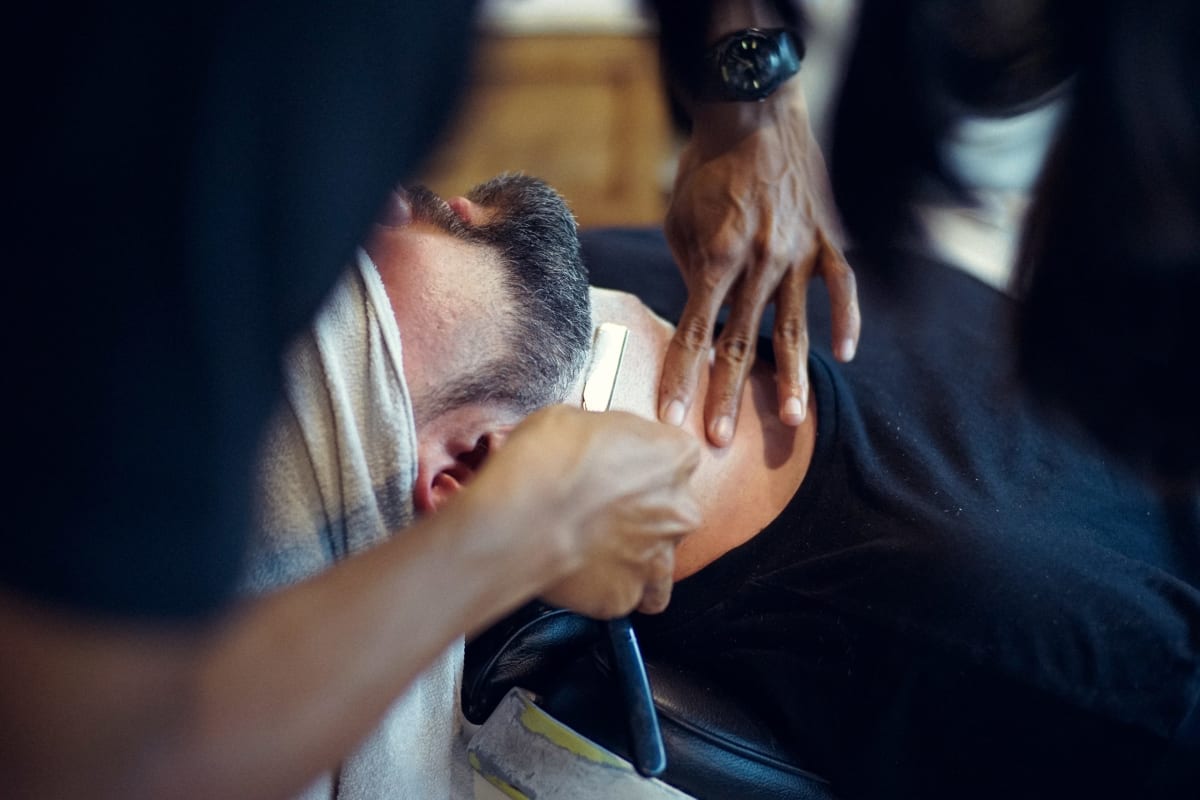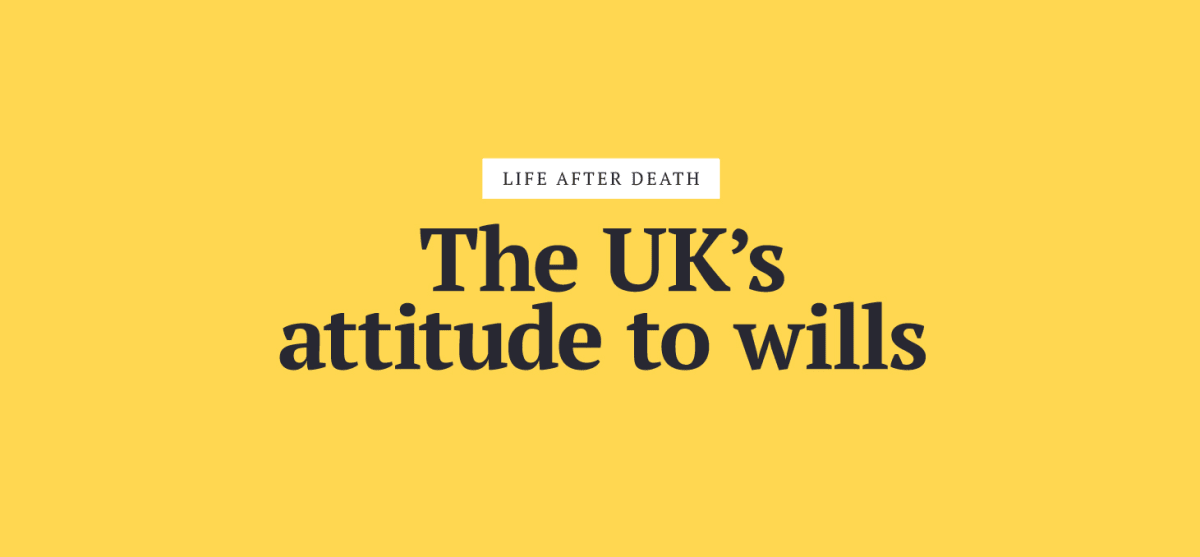
Fairer Finance, a consumer group whose aim is to get people fairer deals from financial services, recently published a report into funeral plans. Over 200,000 funeral plans are sold each year in this entirely unregulated market, so the report took a detailed look at the major players in the funeral plan world and how they do business.
The report was funded by Dignity PLC, a £1.2bn FTSE 250 listed company, who are the second largest provider of funeral services in the UK. Dignity are also one of the largest providers of funeral plans in the UK. Although they funded the report, James Daley of Fairer Finance was quick to reassure readers that “Fairer Finance was given full editorial control of the report, including the right to criticise the conduct of Dignity.”
As one of few investigations into the plan market, this report received a lot of press attention and is likely to be referenced for years to come. One of our founders, James Dunn, read the report eagerly on its release and collected some thoughts.
Within this post there is a number of questions addressed to Fairer Finance. We have sent these over to James Daley of Fairer Finance and will update this post in the event that he responds.
UPDATE 17/07: James Daley has responded to our questions. We have included his responses inline.
***
Firstly, I’d like to say that I welcome the Fairer Finance report into funeral plans. Beyond may be a relatively new arrival to the funeral plan industry, but in the seven months since we’ve been selling plans we’ve quickly learnt that the industry is in a bit of a mess.
Actually, let’s not beat around the bush – it doesn’t take a genius to see that the funeral plan market is a disaster waiting to happen. Widespread reports of pressure selling, opaque funds, comparison sites with no comparison, families left making up shortfalls, funeral directors refusing to take plans…this litany of malpractices adds up to a prime time TV expose in the making. This list of murky practices is longer even than the list of clauses found in many plan contracts.
So, against this backdrop, we thought it would be remiss of us not to put a few questions back to Fairer Finance (and their sponsors, Dignity) on their report.
Commissions, commissions, commissions. What is fair? What is reasonable? And where, oh where is Age UK’s tasty £9.4 million?
Commissions. You get someone else to sell your product because you don’t believe you can sell it yourself. In return, you’re happy to give them a kickback for selling the product you couldn’t sell. Commissions are odd, commissions are murky.
The report rightly identifies one of the key concerns with commissions, “it is often difficult for customers to tell where their money is ending up”.
Golden Leaves, Golden Charter and Safe Hands are all identified as companies paying commissions. The author mentions other cases and ends with the forthright conclusion that, “High-pressure sales and misrepresentation of products identified by this report are likely to be driven by the commission received by operatives for making a sale”.
It’s pretty odd then that the report totally fails to question Dignity over their relationship with Age UK and the commissions paid. This was big news last year with Age UK castigated for “accepting millions of pounds to promote a particular funeral firm – which allegedly charges significantly more than some rivals”.
It took us only a cursory search to find the figures that drew this outrage. Age UK sold 18,000 funeral plans for Dignity and got an eye-watering £9.4 million back.
It does not take advanced calculus to figure out this is £522 commission per plan sold. Great work for a charity helping the elderly if you can get it.
And so, my first question to James Daley of Fairer Finance is…Why did you not look at the commissions paid by Dignity to Age UK and why did these not feature in your report?
James Daley confirmed that he had asked providers about commissions and that they did not want to share them with him. Mr Daley states that he had not previously seen the Age UK article we referenced in the Independent. He has now raised this with Dignity and is awaiting a response. Mr Daley states that he agrees with our sentiment that commissions are probably too high and that he believes at the very least they should be disclosed. Mr Daley also points out that he believes there are bigger issues concerning size of margins in the funeral industry generally.
The one where the author can’t get in touch with Dignity
Everyone expects a funded report to be somewhat relaxed on holding the funder to account. That’s just par for the course. However, it shows startling chutzpah to let the funder off the hook in one paragraph and then lay into their largest rival in the next.
The author, no doubt devoted to his quest for transparency and fairness, asked the Co-op what their admin fee was. We think this is a fair question so sympathise with the author when he writes, “Co-op refused to tell us how much it takes as an admin fee, claiming that this was commercially sensitive.”
Pretty clear to us that the author doesn’t think too highly of this. Yet, did our eyes deceive us when we read about Dignity’s admin fee just two sentences earlier?
On Dignity: “Dignity pays all customer money into a trust, after which a payment is immediately made back to Dignity to cover the costs of selling and administering the plans. It’s not clear how much this is.”
I mean, bloody hell. There are two options here. Either the author failed to ask Dignity what their admin fee was or he asked them and then refused to report it. You just can’t get away with that if you then have a go at a company for not being transparent in the next paragraph.
So, let’s ask Fairer Finance then…Did you request the admin fee from Dignity? If you did, what was their response?
Mr Daley confirmed that he requested the admin fee from Dignity and that they did not disclose it. Mr Daley explains that the Coop was uncooperative with him at first and that this led them on balance to be a bit harsher to Coop than Dignity. Mr Daley adds that since the publication of the report the Coop has been more supportive. Mr Daley also points out that the word “also” was removed from our text and that this had been meant to imply that both Coop and Dignity had refused. We removed this because we felt it superfluous in the context but we recognise that this wording could be intended to put Coop and Dignity in the same bracket (i.e. both were asked and both refused).
Another example of fitting the evidence to the narrative is when the author looks at cancellation fees. Two customer quotes are used in this section to show customers’ distaste of these fees. One for Safe Hands, whose fee is £495, and one for Open, whose fee is £345.
Dignity boasts the second highest cancellation fee at £395 yet somehow not a single customer contacted by Fairer Finance had a bad word to say about it?
Caught between a rock and a hard place. How Dignity has its competitors in a bind over cremation fees…
Dignity is one of only two providers who fully guarantee cremation costs. Guaranteed costs are an unreservedly good thing for customers. They remove any question that there will be a shortfall in plan value when the time comes.
So, are Dignity good because they guarantee cremation costs?
Well, kind of.
The question the report fails to ask is ‘Why do these plans end up with such massive shortfalls?’
Could it have anything even remotely to do with Dignity charging the highest cremation fees in the country?
As our 2017 Cremation & Burial Cost Index showed, Dignity have the dubious honour of operating the most expensive crematoria in the country, charging a huge £999 in some areas. Nine of their sites charge this lofty thousand-minus-one price. To further burnish their high costs, Dignity operate 16 of the top 20 most expensive crematoria in the country. Without wanting to labour the point too much, the average price at a Dignity crematoria is 18% higher than the national average.
Put simply, a Dignity crematorium is an expensive place to be cremated.
Dignity aren’t just the most expensive cremation company. They are also the largest. Dignity control 44 of the UK’s 282 crematoria and are the only single company who can claim to have national coverage. Many locations will have local monopolies, as there are understandably stringent planning restrictions for the building of new crematoria.
These two points combine to put Dignity in a enviable strategic position.
Dignity can safely charge high cremation fees, and increase them each year, knowing that they will still be able to ‘guarantee’ this particular disbursement to their funeral plan customers.
Their competition, however, has to take a gamble.
On the one hand, increasing cremation fees force Dignity’s competitors to raise their ‘cremation contribution’ to ensure customers do not face a shortfall.
Yet, on the other hand, every pound they increase the contribution by raises the total amount the customer pays and therefore makes them more expensive compared to Dignity.
Dignity’s competition are in a pretty weak position here.
They either have to keep the disbursement contribution low and risk customers’ facing a shortfall…or, they have to increase the disbursement contribution and lose the customer to Dignity!
A third question…how can plan companies both compete fairly and avoid disbursement shortfalls, when one of their competitors has a vested interest in high disbursement fees?
Mr Daley responded by saying that price of services in the crematoria sector is a separate debate and that the important thing for prepaid plan customers is that they understand the costs and what their plan will cover before they buy the plan.
Picking on the little guy
In the section titled ‘Regulatory Breaches,’ the author again makes a valid observation. He points out that Safe Hands only show customers a total price on their product pages and that this puts them in breach of their association rules to provide customers with an itemised price list.
Pretty reasonable in my mind, and here’s how the author puts it: “The NFFD requires members to provide “all customers with an itemised price list, and to display this price list in a prominent place at all times.” Safe Hands simply shows headline prices on its product pages…An ‘itemised’ price list would show all costs, including administration fees and commission payments. These should be clearly separated from the headline cost. This is not what Safe Hands is supplying.”
Unfortunately however, the author has once again found a good point but then not provided anywhere near the full picture. You see, the NFFD is the youngest and smallest of the funeral trade associations. It is only a few years old and has only a few hundred members.
The most important two are the NAFD and SAIF. The NAFD traces its roots back to 1898, SAIF to 1989. Both have thousands of members. Both have a seat at the table in talks with government. Together they cover at least 80% of the funeral trade. I cannot imagine the author simply did not find them.
Although NAFD and SAIF are clearly in a different league to NFFD, they do have one area where are all three united. Can you guess what that its?
That’s right! They all have a Code of Conduct for members to abide to!
And, lo and behold, both have rules that tell their members to give customers an itemised price list. You can see their rules here and here.
Why, therefore does the author not make exactly the same point about Dignity (NAFD member), Co-op (NAFD member) and Golden Charter (whose stakeholders are SAIFCharter members), none of whom provide customers with itemised quotes on their product pages either?
It astonishes me that the author has gone out of his way to make a somewhat labyrinthine observation about one particular provider, but then failed to follow it through with anything approaching proper rigour and fairness when it comes to applying the same measure to the financial backer of his report.
And so, my final question is…Based on the same measure you used for Safe Hands, do you also agree Dignity, Co-op and Golden Charter are in breach of their trade association’s terms?
Mr Daley explained that the objective here had been to compare each business against their regulatory body and to identify rules breaches. In this case, it meant most providers were counted as falling under their plan regulator (the FPA) as opposed to their trade body association. Given that Safe Hands are not a member of the FPA, Mr Daley measured them against the code of their association body, the NFFD.











Golden Charter is not owned by SAIF. It’s stakeholders are SAIFCHARTER members.
A small but significant point!!
Thanks Alan – you’re quite right too. We have edited this point in the article.
I’m afraid that the fashion of death is but a mere reflection of the fashion of life – with nowadays political correctness and moral indignation disguising themselves as moral fibre. The latter died a long time ago. A few of us may work towards its resurrection in the hope that honesty and service will be highly regarded and properly rewarded once more. However, at the moment, when articles like the one commissioned appear, it feels like pushing water uphill. Well done on a well written critique.